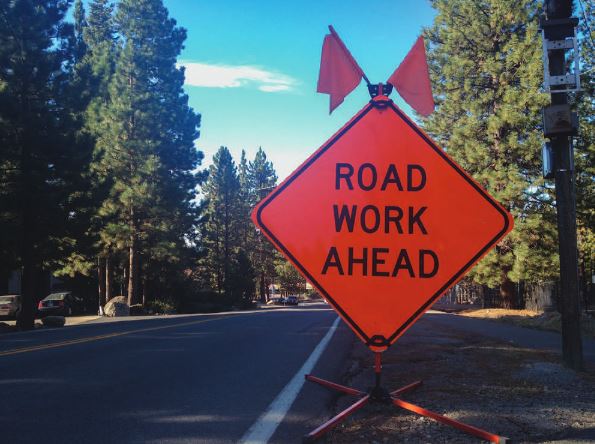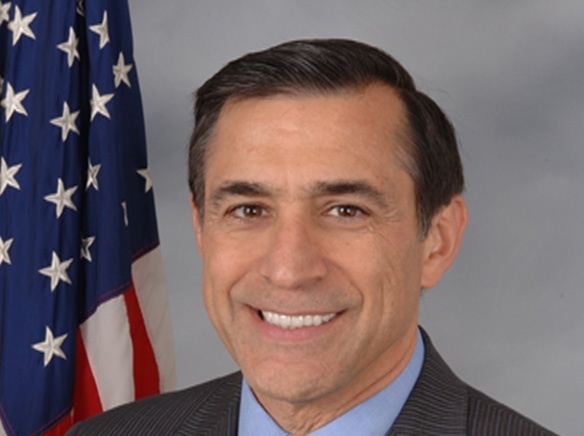The county of San Diego has approved its preliminary list of road segments to be resurfaced.
A 5-0 San Diego County Board of Supervisors vote April 7 adopted a resolution with the list of projects to be funded by Fiscal Year 2021-22 Road Repair and Accountability Act revenue. The road segments include eight in Jamul, six in Alpine, three in Campo, three in Pine Valley, two in Jacumba, one in Boulevard, one in Dehesa, and one in Descanso.
The Road Repair and Accountability Act was passed by the state legislature in 2017 and raised the gas tax by 12 cents per gallon while raising annual vehicle registration fees from $25 to $175 based on vehicle value. The stipulations require that local governments submit a list of projects to be funded by Road Repair and Accountability Act revenue to the California Transportation Commission. The county’s Department of Public Works (DPW) is anticipating $42.2 million of Road Repair and Accountability Act funding during 2021-22, and if the list is unchanged 110.9 centerline miles throughout the unincorporated county will be resurfaced.
The U.S. Army Corps of Engineers developed a pavement condition index (PCI) which utilizes specialized vehicles with downward-facing cameras to inspect roads and determine the road condition. The county’s average PCI was adversely affected by rising construction costs, decreases in state funding, and declining gas tax revenue due to more fuel-efficient cars and electric vehicles. The PCI average fell from 71 in 2010 to 60 in 2016. The county’s intent in 2017 was to use the Road Repair and Accountability Act money to restore the PCI average to 70, and prior to the coronavirus shutdown the plan was to have an average PCI of 65 during Fiscal Year 2020-21. The revised budget reduced the planned average PCI to 63.
“Our PCI has stagnated,” said Supervisor Jim Desmond.
“It’s fallen the last couple of years,” Desmond said. “I’d like to see efforts to improve that.”
A road with a PCI of 71 to 100 is considered very good, and those roads need only routine maintenance. A segment with a PCI of 51 to 70 is considered good, and sealing is the primary remediation method. Roads with a PCI of 26 to 50 are considered poor, and an overlay is used to restore those roads. Streets with a PCI of 25 or lower are considered very poor and require major rehabilitation including the removal of all asphalt and the subgrade base.
“It ends up costing us more in the long run,” Desmond said.
DPW uses a pavement management system which incorporates field review, resident and community input, and mechanical test data to determine which roads are most in need of resurfacing. The structural deterioration of pavement is measured visibly by assessing the degree and type of cracking, the surface deterioration, and the surface defects.
All of the backcountry roads in the resurfacing plan will have overlay treatment which will have a life expectancy of 10 to 15 years following the repaving.
The Jamul work will resurface 0.14 miles of Del Charro Road from Rancho Miguel Road to the cul-de-sac, 0.33 miles of Jefferson Road from Olive Vista Drive to State Route 94, 2.25 miles of Lyons Valley Road from Honey Springs Road to Milepost 9.0, 0.06 miles of Paseo Del Campo from Vista Cielo Drive to the end of the road, 0.06 miles of Rio Brava Court from Del Charro Road to the cul-de-sac, 0.37 miles of Rancho Miguel Road from State Route 94 to the cul-de-sac, 0.26 miles of Vista Cielo Drive from Steele Canyon Road to Vista Cielo Lane, and 0.18 miles of Vista Cielo Lane from the south cul-de-sac to the north cul-de-sac.
The Alpine road segments slated for resurfacing are 0.44 miles of Alpine Boulevard from Victoria Road and Arnold Way to Bay Meadows Drive, 0.13 miles of Alpine Boulevard from Olde Highway 80 and Chocolate Summit Drive to Viewside Lane, 0.10 miles of Calle de Compadres from South Grade Road to the cul-de-sac.














